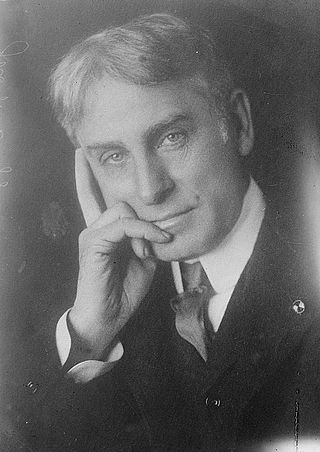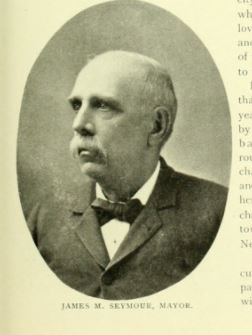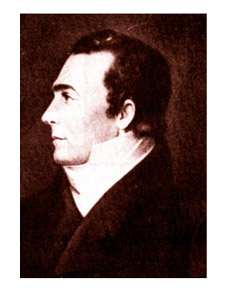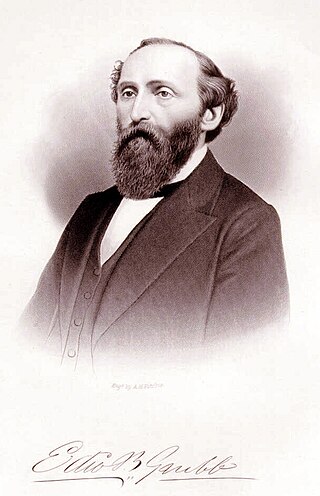| |||||||||||||||||
| |||||||||||||||||
| |||||||||||||||||
| Elections in New Jersey |
|---|
 |
The 1889 New Jersey gubernatorial election was held on November 5, 1889. Democratic nominee Leon Abbett defeated Republican nominee Edward Burd Grubb Jr. with 51.37% of the vote.
| |||||||||||||||||
| |||||||||||||||||
| |||||||||||||||||
| Elections in New Jersey |
|---|
 |
The 1889 New Jersey gubernatorial election was held on November 5, 1889. Democratic nominee Leon Abbett defeated Republican nominee Edward Burd Grubb Jr. with 51.37% of the vote.
| Party | Candidate | Votes | % | ±% | |
|---|---|---|---|---|---|
| Democratic | Leon Abbett | 138,245 | 51.37% | ||
| Republican | Edward Burd Grubb Jr. | 123,992 | 46.08% | ||
| Prohibition | George M. La Monte | 6,853 | 2.55% | ||
| Majority | |||||
| Total votes | 269,090 | 100.00% | |||
| Democratic hold | Swing | ||||

John William Griggs was an American lawyer and Republican Party politician who served as the 29th Governor of New Jersey from 1896 to 1898 and the 43rd United States Attorney General from 1898 to 1901.

Leon Abbett was an American Democratic Party politician and lawyer who served two nonconsecutive terms as the 26th Governor of New Jersey from 1884 to 1887 and 1890 to 1893. His official state biography refers to Abbett as "undoubtedly the most powerful person in New Jersey in the late nineteenth century" and "the first urban-oriented governor" of New Jersey. He was popularly known as the "Great Commoner" for his advocacy on behalf of ordinary citizens. He failed in two attempts to win election to the United States Senate.

The New Jersey Senate is the upper house of the New Jersey Legislature by the Constitution of 1844, replacing the Legislative Council. There are 40 legislative districts, representing districts with an average population of 232,225. Each district has one senator and two members of the New Jersey General Assembly, the lower house of the legislature. Prior to the election in which they are chosen, senators must be a minimum of 30 years old and a resident of the state for four years to be eligible to serve in office.

George Theodore Werts was an American attorney, judge, and Democratic Party politician who served as the 28th governor of New Jersey from 1893 to 1896.

George Craig Ludlow was an American Democratic Party politician, who served as the 25th governor of New Jersey from 1881 to 1884.

Joseph Dorsett Bedle, Sr. was an American attorney, jurist, and Democratic Party politician who served as the 23rd governor of New Jersey from 1875 to 1878.

Edward Burd Grubb Jr. was a Union Army colonel and regimental commander in the American Civil War. He served in three regiments and commanded two of them. In recognition of his service, in 1866, he was nominated and confirmed for appointment to the grade of brevet brigadier general of volunteers, to rank from March 13, 1865. He was later appointed by President Benjamin Harrison as United States Ambassador to Spain. He was also a noted foundryman, business owner and New Jersey politician who was close to Woodrow Wilson.
Jonathan Dixon was an American jurist and Republican party politician from New Jersey. He was an Associate Justice of the New Jersey Supreme Court and was the Republican nominee for Governor of New Jersey in 1883.

James Madison Seymour was the mayor of Newark, New Jersey, from January 1, 1896, to January 1, 1903.

John Grubb (1652–1708) was a two-term member of the Pennsylvania Provincial Assembly and was one of the original settlers in a portion of Brandywine Hundred that became Claymont, Delaware. He founded a large tannery that continued in operation for over 100 years at what became known as Grubb's Landing. He was also one of the 150 signers of the Concessions and Agreements for Province of West Jersey.
Peter Grubb Jr. (1740–1786), Patriot and second son of Peter and Martha Bates Grubb, was a second-generation member of the Grubb Family Iron Dynasty along with his older brother Curtis Grubb. They operated the Cornwall Ironworks, making significant contributions to the American Revolutionary War effort.

Henry Bates Grubb was a third-generation member of the Grubb Family Iron Dynasty, the founder of the family's enterprises headquartered at Mount Hope near Lancaster, Pennsylvania, and perhaps the family's first "true" ironmaster. He was the son and heir of Peter Grubb, Jr. who, with his brother Curtis, had owned and operated the Cornwall ironworks founded by their father Peter Grubb in 1737. Henry and his heirs rebuilt the family business after most of the original Peter Grubb holdings were gradually acquired by Robert Coleman between 1783 and 1802. The Grubbs and Colemans were among the largest iron producers in Pennsylvania through the mid-19th century.

Edward Burd Grubb Sr. (1810–1867) was a prominent fourth-generation member of the Grubb Family Iron Dynasty in Lancaster, Pennsylvania who in 1833, with his brother Clement Brooke Grubb, assumed control of the family business after the death of their father Henry Bates Grubb. Operating out of Mount Hope, they proceeded to rebuild the old furnaces and expand the operation to become one of the largest Pennsylvania iron producers during the mid-19th century. After 1840 Edward became a leading citizen of Burlington, New Jersey and an ardent abolitionist; his estate there is said to have been a station on the Underground Railroad and he was an active supporter of the Civil War effort.

The 1980 United States Senate election in Pennsylvania was held on November 4, 1980. Incumbent Republican U.S. Senator Richard Schweiker decided to retire, instead of seeking a third term.

The 1964 United States presidential election in New Jersey took place on November 3, 1964. All 50 states and the District of Columbia, were part of the 1964 United States presidential election. Voters chose 17 electors to the Electoral College, which selected the president and vice president.

The 1931 New Jersey gubernatorial election was held on November 3, 1931. Democratic nominee A. Harry Moore defeated Republican nominee David Baird Jr. with 57.82% of the vote.

The 1922 New Jersey gubernatorial election was held on November 7, 1922. Democratic nominee George Sebastian Silzer defeated Republican nominee William Nelson Runyon with 52.19% of the vote.

The 1919 New Jersey gubernatorial election was held on November 4, 1919. Democratic nominee Edward I. Edwards defeated Republican nominee Newton A.K. Bugbee with 49.20% of the vote.

The 1883 New Jersey gubernatorial election was held on November 6, 1883. Democratic nominee Leon Abbett defeated Republican nominee Jonathan Dixon with 49.93% of the vote.

Frank Snowden Katzenbach, Jr. was an American jurist and Democratic party politician from New Jersey. He was an Associate Justice of the New Jersey Supreme Court and was the Democratic nominee for Governor of New Jersey in 1907. He was the brother of New Jersey Attorney General Edward L. Katzenbach and uncle of Nicholas Katzenbach, the United States Attorney General.